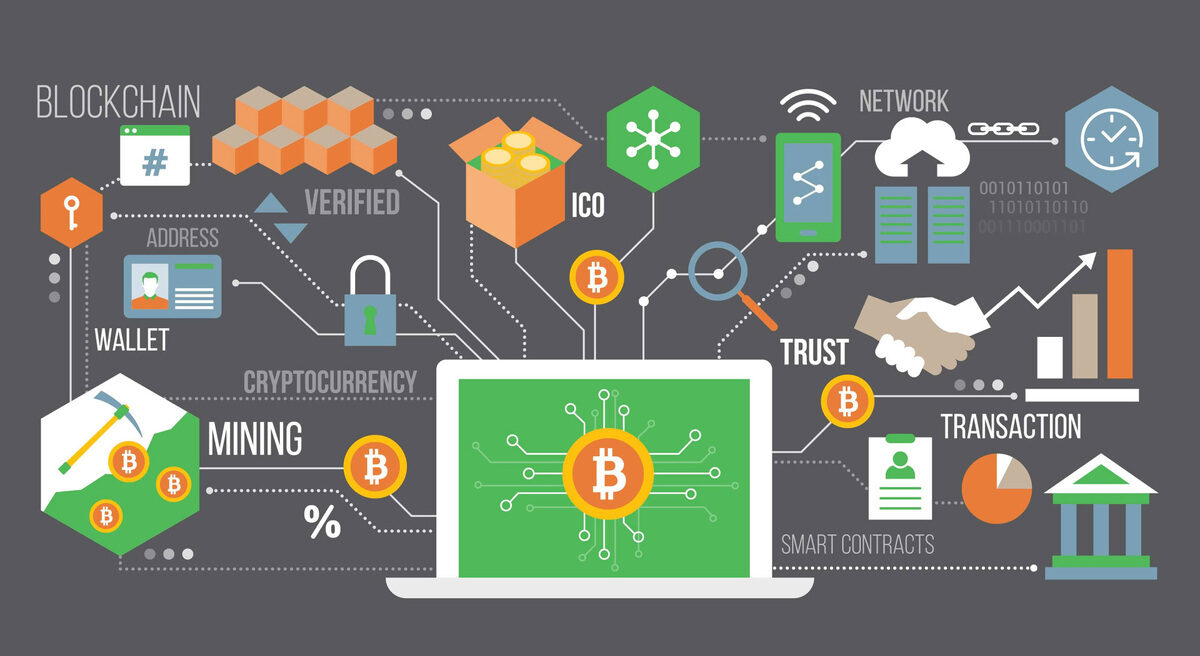Blockchain Patents in Germany 2025 Innovation Index and Growth

In 2025, Germany remains a leader in technological innovation within the European Union, with blockchain technology emerging as a cornerstone of its digital transformation strategy. The surge in blockchain-related patents filed in Germany reflects a broader global trend. Still, it also highlights the nation’s unique approach to fostering innovation, protecting intellectual property, and creating a regulatory environment conducive to decentralized technologies.
As industries ranging from finance to logistics embrace blockchain for its transparency, security, and efficiency, Germany’s role in this space is becoming increasingly prominent, making the “Blockchain Patents Filed in Germany – Innovation Index 2025” a vital metric of progress and foresight.
Germany’s Role in Global Blockchain Innovation
Germany’s rise as a blockchain hub is no accident. The federal government’s proactive support, illustrated by its Blockchain Strategy (Blockchain-Strategie) introduced in 2019 and updated in subsequent years, laid the foundation for robust academic research, commercial exploration, and legal clarity. By 2025, Germany has solidified its reputation as a European blockchain powerhouse, with cities like Berlin, Frankfurt, and Munich hosting thriving ecosystems of startups, research institutions, and multinational corporations engaged in distributed ledger technology (DLT) development.
Blockchain innovation in Germany is closely tied to its advanced manufacturing sector, often referred to as “Industrie 4.0”. Smart contracts and decentralised systems have found practical applications in supply chain management, machine-to-machine communication, and digital identity verification. These real-world implementations are increasingly protected by patent filings, indicating a maturation of blockchain technologies from experimental concepts to business-critical infrastructure.
Growth in Filings and Strategic Sectors
In 2025, the number of blockchain patents filed in Germany reached an all-time high, according to data from the German Patent and Trademark Office (DPMA) and the European Patent Office (EPO), which indicated a 34% year-over-year increase. This growth is largely attributed to heightened activity from both domestic companies, such as Deutsche Telekom, Siemens, and SAP, and international firms like IBM, ConsenSys, and Alibaba, who see Germany as a key entry point into the European blockchain market.
The sectors leading this patent boom are finance, healthcare, logistics, and energy. In finance, patents focus on decentralized finance (DeFi) platforms, tokenized asset management, and cross-border payment solutions. In healthcare, innovations focus on enhancing data interoperability, patient record authentication, and secure data sharing. The logistics industry is leveraging blockchain for end-to-end supply chain transparency and counterfeit prevention, while the energy sector is experimenting with peer-to-peer energy trading platforms and the tokenization of carbon credits.
Notably, the use of patent classification codes such as G06Q (data processing systems for administrative, commercial, or financial purposes) and H04L (transmission of digital information) shows the technical overlap between blockchain, AI, and telecommunications, further reinforcing the cross-disciplinary nature of innovation in this space.
Innovation Index 2025: Metrics and Meaning
The Innovation Index 2025 for blockchain in Germany is a composite metric derived from several key indicators, including the number of patent applications, research publications, venture capital investment, startup formation, and regulatory advancements. The index is maintained by entities such as the Fraunhofer Institute and the European Innovation Scoreboard, providing a comprehensive picture of innovation velocity and depth.
According to the 2025 index, Germany ranks second in Europe, just behind Switzerland and ahead of countries like the Netherlands and France. However, Germany leads in enterprise blockchain adoption, with more than 65% of its top 100 companies experimenting with or implementing blockchain solutions. The integration of blockchain into traditional industries gives Germany a unique advantage, where the technology is not merely theoretical but fundamentally transformative.
Legal and Regulatory Framework
Germany’s forward-thinking legal environment has played a crucial role in stimulating blockchain patent activity. The introduction of the Electronic Securities Act (Gesetz über elektronische Wertpapiere – eWpG) and the expansion of the Digital Strategy 2025 have created legal certainty around tokenised assets and digital identities. Additionally, alignment with the EU’s Markets in Crypto-Assets Regulation (MiCA) ensures a harmonised approach across member states, further incentivising multinational companies to file patents within Germany.

The establishment of specialised blockchain courts in Frankfurt and Hamburg to handle intellectual property disputes, combined with fast-track patent examination for digital technologies, has made the German patent system more efficient and attractive to innovators. These developments not only protect but also encourage the commercialisation of blockchain innovations.
Challenges and Opportunities
Despite the positive outlook, challenges persist. The rapid evolution of blockchain protocols often outpaces existing patent frameworks, leading to potential overlaps, legal ambiguities, and enforcement issues. Patent trolls and non-practising entities (NPEs) have begun targeting blockchain firms, especially startups, with litigation threats over broad or vague patent claims.
To mitigate these risks, collaborative initiatives such as the Blockchain Patent Alliance (BPA), headquartered in Berlin, have emerged. This organisation aims to foster a defensive patent pool and promote open-source standards, ensuring that innovation is not stifle by litigation.
Furthermore, German universities and research institutions are playing a pivotal role by licensing patents through public-private partnerships, thus bridging the gap between academia and industry. The Technical University of Munich (TUM), Karlsruhe Institute of Technology (KIT), and the Max Planck Institute for Innovation and Competition are leading contributors in this domain.
What Lies Ahead for Blockchain Innovation in Germany
As Germany looks toward 2030, its blockchain patent trajectory suggests increasing convergence with other exponential technologies, such as quantum computing, edge computing, and 6G networks. Patent filings are expected to reflect this trend, with complex, multi-technology applications requiring cross-disciplinary innovation.
Strategic government funding, such as the “Digital Innovations for the Common Good” programme, is likely to continue spurring research and commercialisation efforts, particularly in climate tech and data sovereignty — two areas where blockchain offers considerable promise.
Internationally, Germany’s position as a leading patent jurisdiction for blockchain technologies strengthens its influence in shaping global standards, including its role in the International Telecommunication Union (ITU) and the World Intellectual Property Organisation (WIPO).
Summary
Germany’s progress in blockchain patent filings and its Innovation Index ranking in 2025 underscore the country’s strategic vision and capability in shaping the future of decentralised technologies. Through a combination of government support, private sector investment, academic excellence, and regulatory clarity, Germany is not only safeguarding its technological advances but also fostering a vibrant innovation ecosystem with global relevance.
For stakeholders—whether they are startups, investors, legal professionals, or policymakers—understanding the dynamics of blockchain patents in Germany provides a blueprint for building resilient, scalable, and future-proof digital infrastructures.
FAQs
Q1. Which industries in Germany are leading in blockchain patent filings?
The leading sectors include finance (especially DeFi), healthcare, logistics, energy, and manufacturing, where blockchain enhances transparency, efficiency, and security.
Q2. How does Germany compare to other countries in blockchain innovation?
Germany ranks among the top in Europe for blockchain adoption and enterprise use. It trails only Switzerland in patent volume but leads in practical, large-scale implementation.
Q3. Are blockchain patents enforceable under German law?
Yes. Germany has a strong intellectual property framework, and recent legal reforms support digital and blockchain-related patents, with courts increasingly familiar with such cases.
Q4. Where can I access information about blockchain patents filed in Germany?
You can consult the German Patent and Trade Mark Office (DPMA), the European Patent Office (EPO), and databases such as Espacenet and WIPO Patentscope for detailed records and application statuses.
